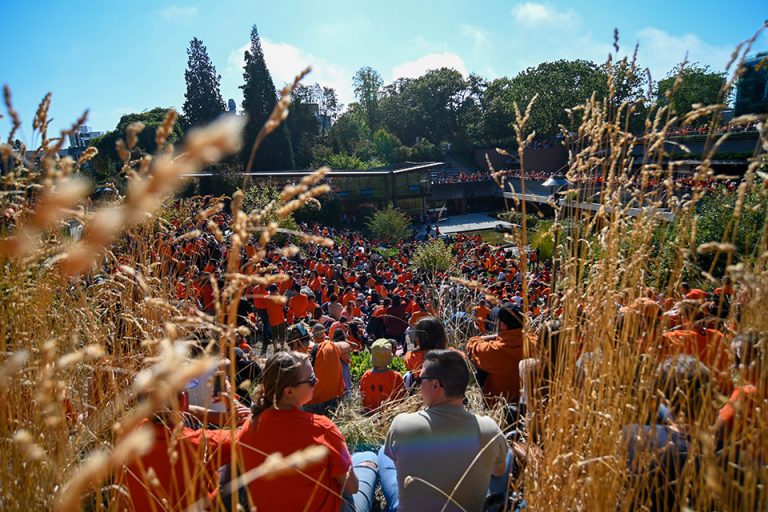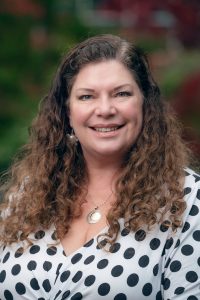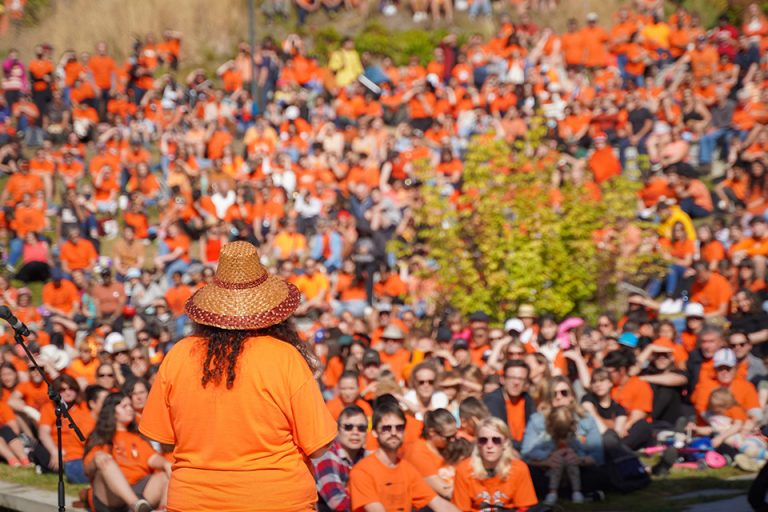UBC launches training course on Indigenous understanding for faculty and staff
A version of this article originally appeared on UBC Applied Science.
A new course to set a baseline understanding of Indigenous matters among UBC faculty and staff is officially launching on National Indigenous Peoples Day (June 21).
Weaving Relations is a self-paced, online training course that explores Indigenous histories, people and contexts, as well as settler colonialism in Canada, through the lens of Indigenous-Canadian relationships.
Developed jointly by the Faculty of Applied Science and the Faculty of Land and Food Systems (LFS), Weaving Relations will serve as a foundational course and the first of a three-part, forthcoming certificate in Indigenous cultural humility for UBC settler faculty and staff.
The other two components in the certificate will use Indigenous knowledge and customs to deepen individuals’ application of learned material. These will be in the form of an experiential learning and a reflective cohort for those who have completed the Weaving Relations course, as well as a land-based learning cohort at UBC Farm and the xʷc̓ic̓əsəm garden.

Large crowd gathered outside the Indian Residential School History and Dialogue Centre at UBC on Orange Shirt Day. Weaving Relations aims to lay a foundation for meaningful dialogue. (Photo credit: Paul Joseph and UBC Applied Science)
The full certification program, known as the Indigenous Design and Engagement in Applied Science and Land and Food Systems (IDEAL) certification, will launch in 2025. This certificate is made possible as part of a $250,000 award from the Indigenous Strategic Initiatives Fund under the transformation stream.
The certificate aims to meet the goals of the Indigenous Strategic Plan, particularly action 34 to “develop and deliver Indigenous history and issues training for all faculty and staff,” as well as Applied Science and LFS priorities to build inclusive leadership and respectful engagement.
Laying the foundation for conversation

Dana-Lyn Mackenzie
Dana-Lyn Mackenzie, senior manager of equity, diversity, inclusion and Indigeneity (EDI.I), and a Coast Salish person from the Hwlitsum First Nation, developed the course and explains her motivations for proposing it.
“At first, I noticed a gap in offerings in education on Indigenous knowledge. People would come into training courses with a wide variety of background knowledge, which meant trainers were covering the same basics at every workshop. That made it difficult to delve deeper into topics within a limited time frame.
“We wanted to lay a foundation to help people engage more meaningfully in conversations, so we created the Weaving Relations course to bridge that gap, and then make it part of a bigger certification.”
While originally envisioned for faculty and staff, Weaving Relations is now available to anyone at UBC with a campus-wide login, and will equip individuals with the fundamental competencies needed to reflect and engage in deeper conversations as part of the important and meaningful work of reconciliation.
“Reconciliation is everyone’s responsibility. Our hope is that Weaving Relations provides the necessary foundational training for people, and particularly settlers to this land, to help them on their journey of understanding and action to advance reconciliation,” said Dr. Sheryl Staub-French, associate dean of EDI.

Dana-Lyn Mackenzie speaking to hundreds of attendees at UBC for the Orange Shirt Day intergenerational march. (Photo credit: Oliver Mann and UBC Applied Science)
“Having a baseline understanding of Indigenous histories and perspectives, cultural humility and anti-racism tools is critical for all the work that we do, and absolutely necessary to create inclusive spaces and places at UBC where everyone can thrive.”
Transforming people, transforming systems
Weaving Relations is intended to transform not only individuals’ understanding of Indigenous history and issues, but also UBC systems that will enable more empathetic, thoughtful policies.
“If we can transform administrative policies that – unintended or not – currently create barriers, and can instead decolonize processes in areas that traditionally haven’t engaged with Indigenization as much, we can really begin to build better relationships with our students, faculty and staff,” said Mackenzie, who earned a UBC President’s staff award in 2016 for her impact in developing Indigenous awareness programming for the Peter A. Allard School of Law.
“Indigenous knowledge and expertise should not only be an EDI matter – they should be in all spaces. Reconciliation is the job of every person living in Canada to engage in. Educating and applying different perspectives on Indigenous knowledge is what will make long-lasting, meaningful change.”